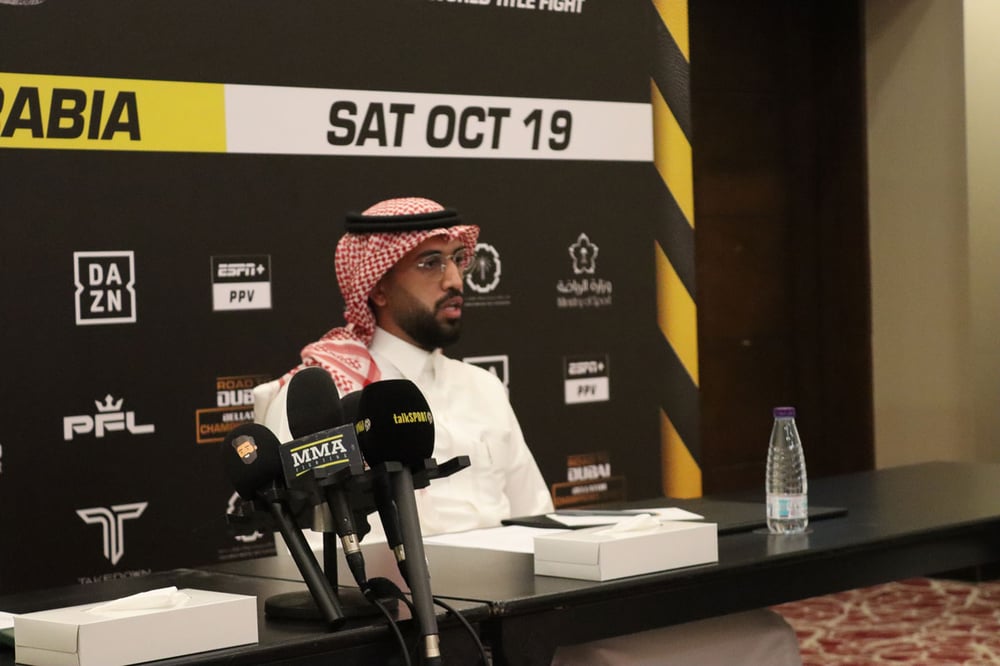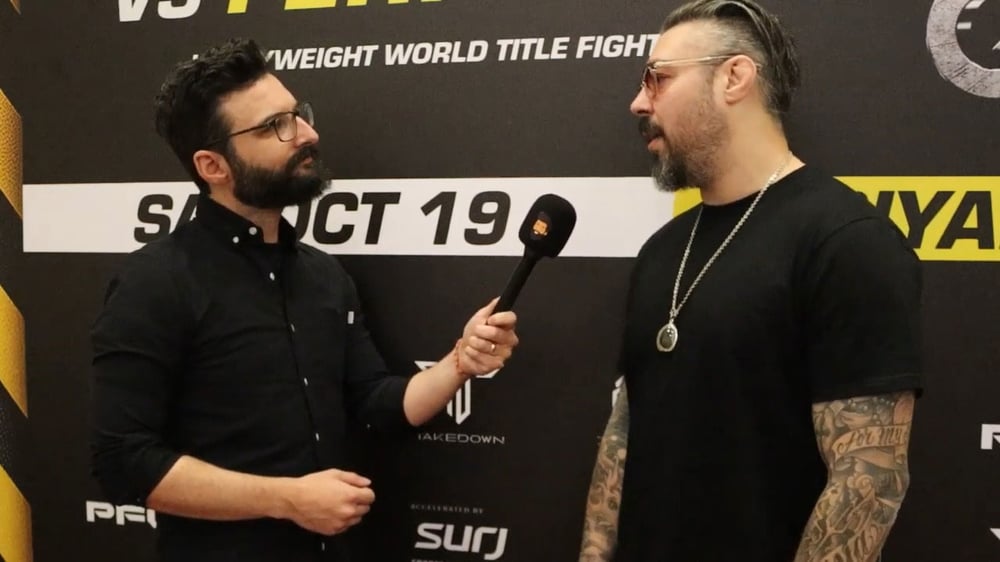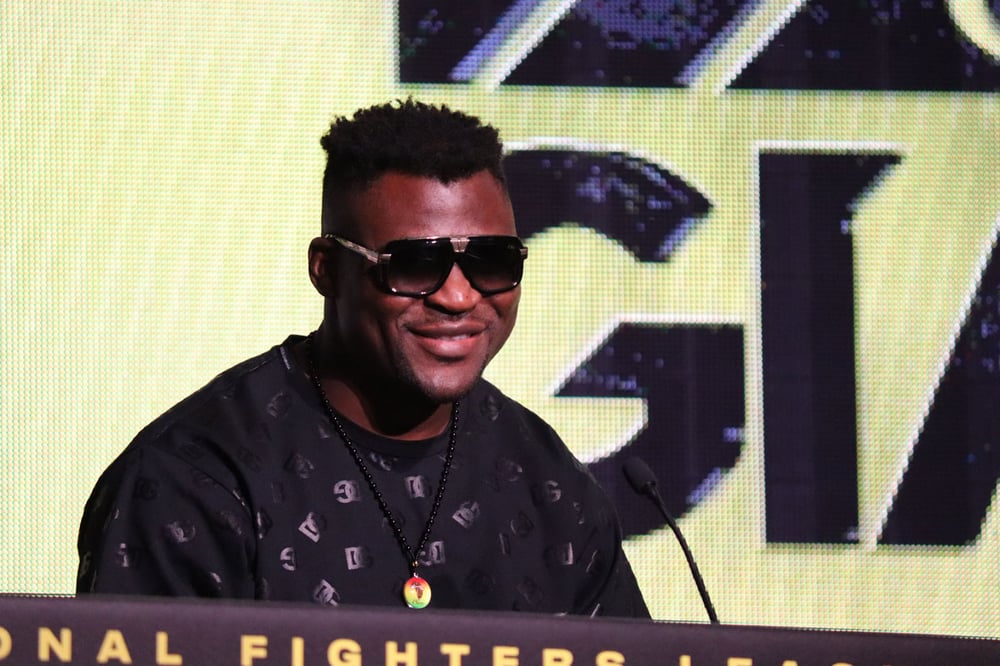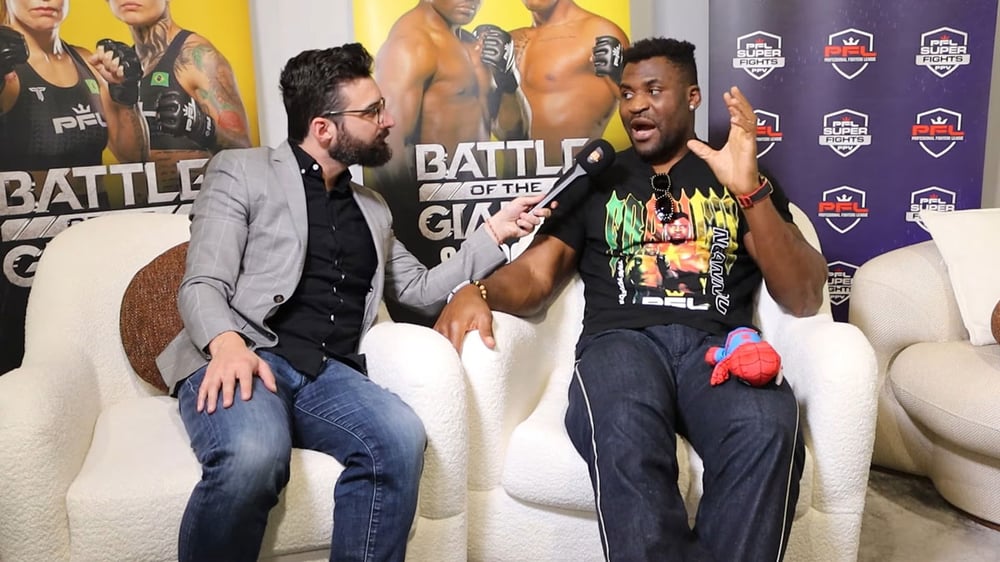
Issue 210
October 2024
Saudi Arabia's bold embrace of MMA is set to punch through a health crisis and build a fitter, stronger future for its nation.
It’s a near-impossible challenge to fight against nearly a century’s worth of cultural practices, but Saudi Arabia is taking on this endeavor. Through MMA, the leaders in Riyadh are hoping to revolutionize the habits of its youth. Fighters Only’s Timothy Wheaton recently went to Saudi Arabia to speak with the country’s professional fighters, leaders, and locals to get to the bottom of the solutions around this nation's health issues.
SAUDI ARABIA’S HEALTH CRISIS
For decades, the youth of Saudi Arabia have been suffering from Type 1 and 2 diabetes. A significant driver for this is that it is estimated that a whopping one-third of the nation suffers from diabetes, which is linked to lifestyle and diet. Gym, exercise, and eating healthy foods are simply not part of the daily culture in the Kingdom. In Western nations, students attend gym classes with additional sports if they choose outside of school hours. Whether by parents or administrators, sporting activities are pushed onto Western students. However, this is not the case in Saudi Arabia. Gym classes do not exist in schools, and organized sports are rare.
What’s more, parents encourage their children to focus on academic pursuits instead of sports. With 42.9% of the Saudi population expected to be obese by 2026, the country has slowly developed a health crisis that is costing billions to treat patients through their health system. But, the Saudi leadership, with Turki Alalshikh at the helm, is looking to change this through MMA. They want to inspire the nation to join sports and begin working out; martial arts has become the core of this because it develops both body and mind.
VISION 2030
Saudi Arabia introduced Vision 2030, their roadmap for revolutionizing and advancing the nation in critical areas. These ambitious goals include infrastructure and economic growth projects in the pursuit of an increase in the nation's quality of life. By sponsoring sporting events led by Turki Alalshikh, the Saudi Arabian government hopes to inspire the population to commence athletic activities. Currently, it is estimated that less than thirteen percent of the population is exercising. By 2030, they are hoping to increase this number to forty percent. The sports they have used to inspire the population are vast and many. These have included blockbuster boxing events such as Tyson Fury vs. Oleksandr Usyk. Plus, they signed Cristiano Ronaldo, the footballing great, to compete professionally, playing for Al Nassr FC hosted in Riyadh. The league also has recruited key players such as Neymar and Karim Benzema. With all this, the country will likely host a FIFA World Cup event soon. Additionally, they have brought on golf and F-1 car racing. However, at the root of inspiring the population to be athletic is a tool that is timeless: martial arts. Combat sports have existed throughout human history across every culture. And now, Saudi Arabia will use it to boost their nation's health. Abdullah Al Hazza, the CEO of the Saudi Arabia Mixed Martial Arts Federation, explained:
“We're invested in the youth because the youth is the future of this country and the future of the sport. If we build on the youth, then the sport will grow rapidly.”
If they can succeed in inspiring the population to exercise through any sport, it would positively impact the kingdom's future generations. Making changes to a culture is far easier said than done. If a government keeps channeling enough money toward the problem, will this solve it? Saudi Arabia aims to be the first to find out.

MMA IN SAUDI ARABIA
The UFC and PFL are pillar organizations working with Saudi Arabia to build up sports and athletics. The UFC has hosted events in the country. Now, the PFL has put down roots for a permanent organization, PFL MENA (Professional Fighters League Middle East and North Africa), to crown regional champions. Not only that, the PFL also hosts most of their tent pole event in Riyadh. The efforts from Saudi Arabia are both top-down and bottom-up. The PFL is the top-down approach. For the grassroots bottom-up, the government has allocated millions of dollars to help support MMA gyms to foster talent through SRJ Sports Investments. In conversation with the CEO of SRJ Sports Investments, Danny Townsend explained what this looks like.
“It’s about bringing this sector to life, inspiring people in the kingdom to taste a world-class version of that sport, and then go out and try it, get out into a gym, and start learning the craft,” says Townsend. “We wanna make sure whatever we’re investing in internationally does have relevance here that does inspire and, and create those pathways for, for young Saudis to try sport for the first time.”
Abdullah Al Hazza, the CEO of the SMMAF, told me how things are already looking positive.
“We've seen a significant increase in participation in the Kingdom this year, and we believe that collaboration with PFL will enhance the development of athletes, coaches, and the administration involved in the MMA community,” explained Al Hazza. “This is just another step forward. We’re committed to conducting training sessions, workshops, and various activities in partnership with PFL to ensure that the Federation and everyone within the ecosystem continues to progress.”
MARTIAL ARTS EXPERIENCE
One fighter to emerge from this grassroots system is Hattan Alsaif. After winning national titles in Muay Thai, she transitioned to MMA with the PFL. During a conversation with this knockout striker, she explained how things are progressing.
“Saudi Arabia is going so fast in the sports at this time,” smiles Alsaif. “And they are really achieving a lot. And I know that I will represent the women in my country. I’m proud of what’s happening here.”
Hattan Alsaif knows the advantages of martial arts go well beyond trying to fight for titles around the globe. She was in a terrible depression after her parents passed away. However, joining a gym did wonders for her mental health.
“It changed my body and changed my mind,” she says. “It changed my lifestyle. It changed me totally. A hundred percent. And that’s why it helped me to get over it. Not just martial arts but all sports can help. It lets you sleep better. Clears your head. Sports make a huge difference in people’s lives.”
Peter Murray, PFL CEO, has a similar outlook to her.
“We are particularly proud to support Hattan, the first-ever Saudi professional female MMA fighter, in her journey. This is part of our mission, to grow the sport and increase female participation in Saudi Arabia."
Speaking with former UFC top contender Dan Hardy while in Saudi Arabia, he added how much martial arts can make a difference in one’s life. Looking at his own journey, Hardy explained how it impacted him.

“I’m a prime example of it,” smiles Hardy. “I got into Taekwondo because I was struggling with bullies at school. It was a self-confidence thing for me. I loved the Ninja Turtles, but martial arts gave me the confidence to handle myself. By my mid-teens, I had built myself into a competent martial artist, and that gave me the confidence to walk into any room and have a calm presence. I no longer felt agitated or bullied. As soon as I was old enough, I started teaching kids. I had a whole group of kids I took to competitions. You can really see how it changes their lives, win or lose. Just going out there and trying, getting that positive encouragement from their parents—it’s huge. Martial arts is a life-changer.”
THE BIG GUNS
At the heart of Saudi Arabia’s martial arts move is Francis Ngannou, who has competed in two blockbuster matches in Riyadh against boxing royalty Tyson Fury and Anthony Joshua. Fighting with the PFL, he picked up their Super Fights heavyweight title by first-round knockout when he stopped the towering Brazilian knockout machine Renan Ferreira live from Riyadh. Ngannou knows how important athletics and martial arts are in a young person's life. He works as the leader of PFL Africa to lead a change and lift the continent using MMA. Additionally, he has a foundation that invests in children’s pursuits. In a conversation with Ngannou, he explained the vision of his foundation.

“It’s not just about believing in them,” says Ngannou. “I usually say, ‘Care for them.’ Let them understand that they matter. From the moment they understand that they can take control of their development. Everyone is the main component of their own journey. What we do from the outside is just contributing, but the real work comes from within. We help them find themselves, and the goal of the foundation is to support their personal development. It doesn’t matter what they want to be - whether it’s a journalist, fighter, lawyer, doctor, or architect. As long as they believe in themselves, they can become what they aspire to be.”

CHANGING LIVES THROUGH MMA
But why invest so heavily in martial arts if any exercise will pay dividends to young people? According to research, martial arts help children through improved motor skills, coordination, cardiorespiratory fitness, heart health, balance, strength, and agility. These tests analyzed children participating in Judo, Taekwondo, Aikido, or Karate and compared the findings to peers not participating in martial arts. Children participating in martial arts improved their overall health, even when compared to children in other sports, not just those who were inactive.
These advantages can last a lifetime if you consider the uptick you’ll get from a stronger cardiovascular system, which helps reduce the risk of heart disease. It can also improve bone density and muscle strength, supporting healthy growth and brain development, and potentially leading to better performance in school. Finally, if you want to increase a young person’s self-esteem and confidence while reducing anxiety and depression, exercise ticks every box.
LIFE LONG CHANGE
Why start with the kids? Well, children who exercise are far more likely to continue to exercise throughout their lives. It creates the habit of regular physical activity. The push into martial arts and athletics has advantages that go well beyond glory and prestige. Sure, crowning a Saudi-born world champion would be a jewel in the throne of Riyadh. However, more importantly, this system gives the nation a platform to create healthy habits that will reduce the health crisis and benefit all citizens. Through Vision 2030 and partnerships with organizations such as the PFL, the Kingdom is building a new foundation for physical fitness and personal development. This movement, backed by grassroots and top-down efforts, holds the potential to transform Saudi Arabia’s future, says Abdullah Al Hazza.
“We understand that it will take a lot of effort from our side and from the athletes, and we are committed to this journey,” says Al Hazza. “We hope to see our fighters on the global stage one day. It’s important for the growth of the sport and for nurturing the talent here. The great talents we have will only get better and inspire younger generations. This partnership is key for the future of MMA in Saudi Arabia.”
In a land where tradition meets ambition, Saudi Arabia's gamble on martial arts is more than just a fight for titles - it's a fight for a healthier, stronger future where one nation's vision is looking to turn punches into progress.










